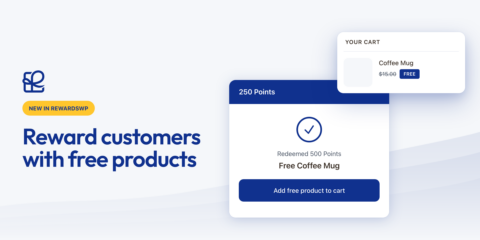
Reward Your Customers with Free Products, Not Just Coupons
Not every reward needs to be a discount. Now you can offer any product from your store as a loyalty or referral reward - customers claim it, add to cart, and it's free.
Continue Reading →
Not every reward needs to be a discount. Now you can offer any product from your store as a loyalty or referral reward - customers claim it, add to cart, and it's free.
Continue Reading →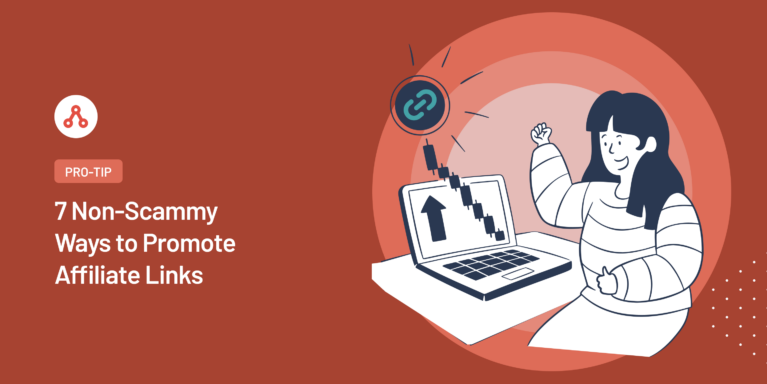
Are you struggling to get more sales from your affiliate program?
Most businesses start an affiliate program, hoping it will boost their revenue quickly. But getting your affiliates to actively promote your products isn’t as simple as giving them a link and hoping for the best.
In this guide, we’ll show you proven ways to help your affiliates promote your products more effectively.
Many affiliate programs struggle with the same challenge: affiliates who promote links ineffectively.
You’ve probably seen it happen, affiliates posting links randomly in comments sections, spamming forums, or dropping them across social media without context.
This not only fails to generate sales but can also damage your brand’s reputation.
But, you can guide your affiliates toward better promotion strategies. By showing them the right way to share affiliate links, you’ll help them earn more commissions while protecting your brand and growing your program.
Here are 7 proven ways your affiliates can promote your products effectively:
Creating comprehensive product reviews is crucial for generating sales and trust. It’s the most genuine way of promoting affiliate links that does not scream “scam.”
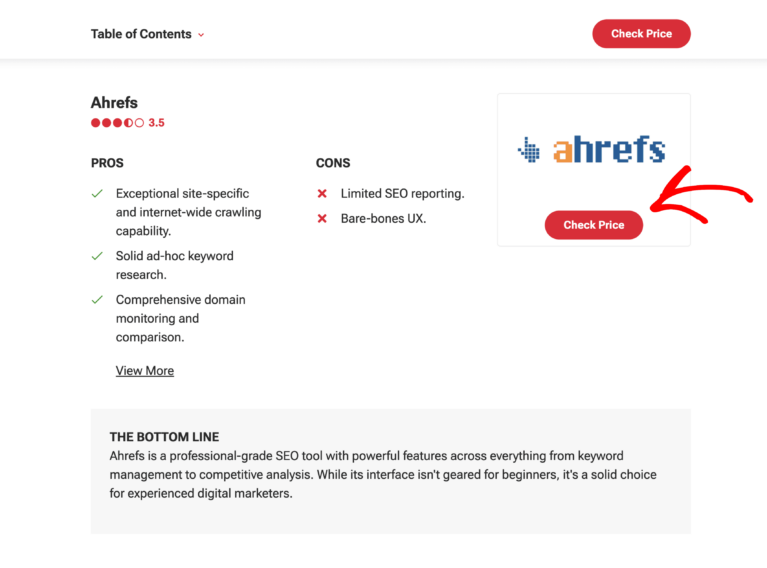
Start by encouraging your affiliates to actually use your product before writing their review.
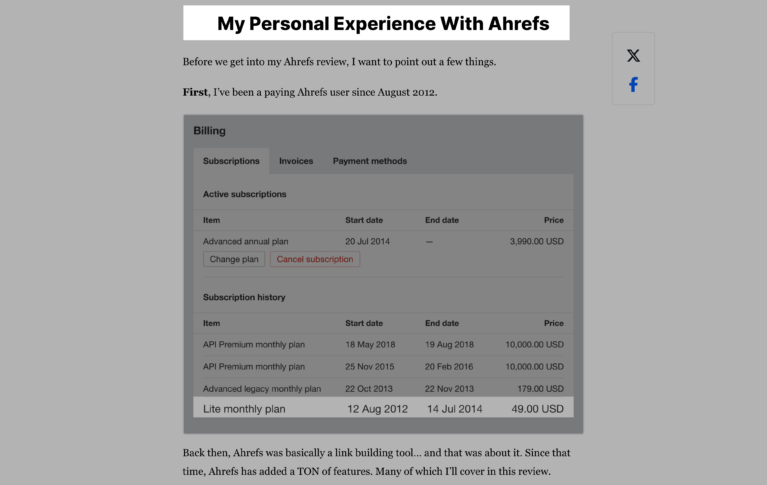
Moreover, inform your affiliates how to include real results and examples in their reviews.
For example, check this example of Semrush review article where Brian Dean showcases the features he liked and how it helped his business.
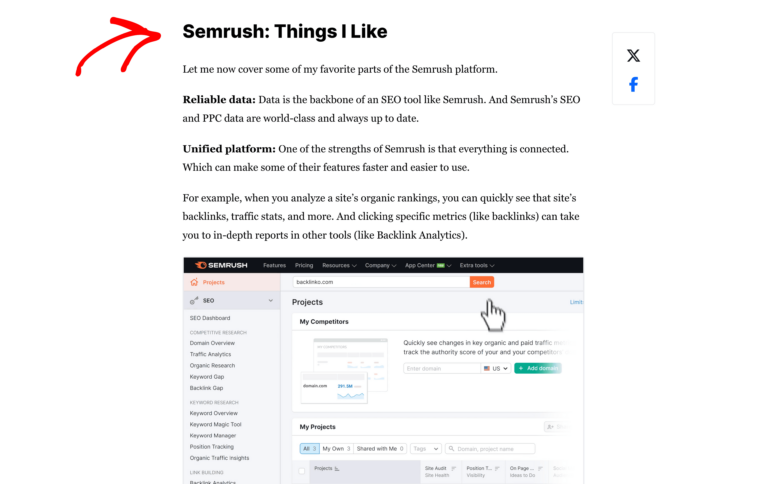
These concrete examples are far more powerful than general statements like “this tool helps grow your following.”
Comparison content works when it focuses on helping readers make the right choice. If it feels biased or pushy, an affiliate can’t attract clicks to their affiliate links.
A good comparison breaks down features readers actually care about. Instead of listing every tiny detail, affiliates should focus on deal-makers and deal-breakers.
This means covering aspects like price points, ease of use, and specific features that solve real problems.
Here’s another example from Backlinko. In this Ahrefs vs. Semrush post, they clearly compared the price points, best features, and what makes one better than the other.
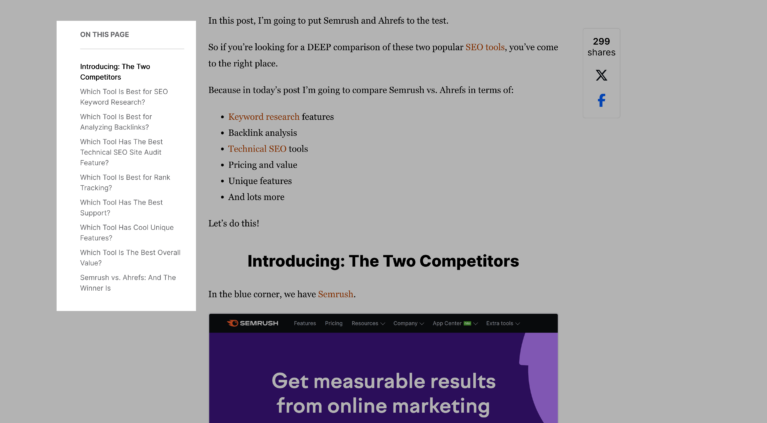
The best comparison posts acknowledge that different users have different needs. This mindset helps an affiliate to create a balanced post that serves the reader, resulting them to click the affiliate links and making that buying decision.
Your affiliates’ email marketing succeeds when subscribers look forward to their emails. This means building a list based on shared interests and genuine help, not just promotional content.
Here’s an example of how an affiliate can promote a product and insert their affiliate links that increases the chances of conversions:
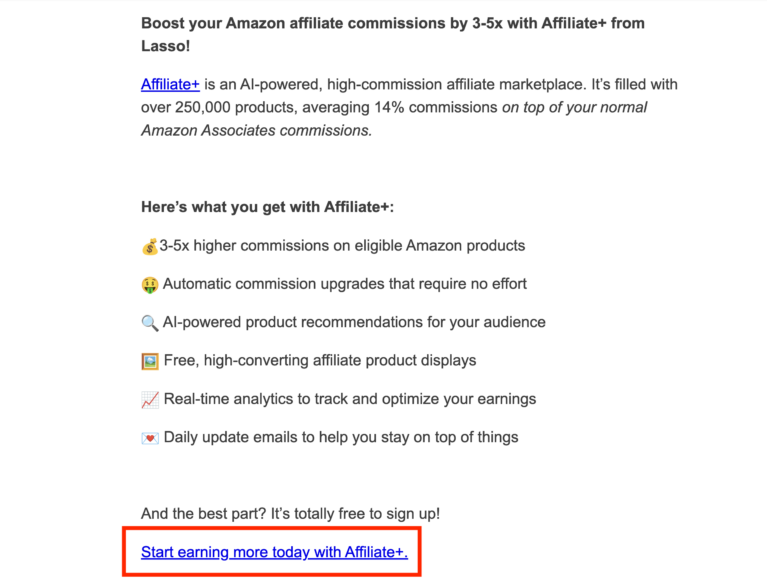
If you’ll see the above image, the reason a reader will click the affiliate link is the email provides them value, shows them their problem and gives them a solution.
Also, one must not forget that the foundation of good email marketing is trust. When affiliates regularly share useful tips, industry insights, and honest product experiences, subscribers stay engaged.
This creates natural opportunities to include affiliate links within valuable content.
Your affiliates’ resource pages work best when they’re genuinely helpful first and promotional second.
The most successful resource pages showcase various tools, not just your product.
When affiliates list different solutions they actually use: from free WordPress plugins to premium software, readers trust their recommendations more. This shows, they’re focused on helping their audience, not just earning commissions.
Take NicheSiteLady’s resource page as an example. She lists everything from hosting providers to keyword research tools, writing tools, and even her preferred laptop stand.
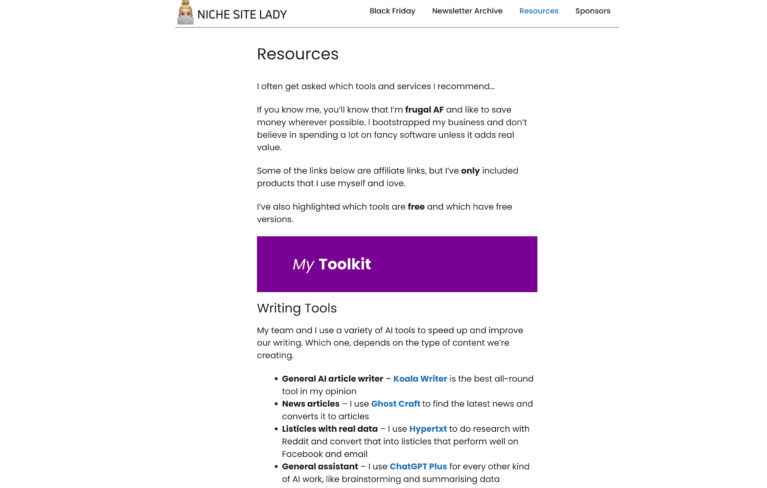
Each recommendation includes a brief, honest explanation of why she uses it. Some tools have affiliate links, others don’t, but readers don’t mind because they’re getting genuine recommendations.
When affiliates share how they actually use your product in their daily work, it resonates with readers who face similar challenges.
Tutorial videos showing how to accomplish real tasks with your product naturally attract interested viewers. When someone searches “how to set up email marketing automation” and finds your affiliate’s detailed walkthrough, that link in the description makes perfect sense.
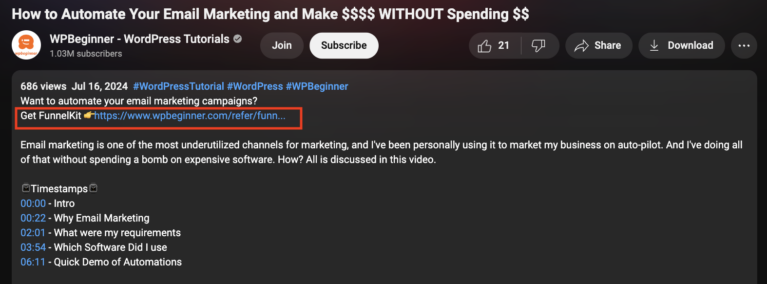
Long-form content like podcast interviews or in-depth YouTube reviews build audience trust over time.
Unlike quick promotional videos, these formats let affiliates share genuine experiences with your product.
However, the key to video and audio success is consistency in a specific niche. When affiliates become known for their expertise in areas related to your product, their recommendations carry more weight.
Your affiliates’ success in online communities depends on their reputation as helpful members first, promoters second.
The most effective community participants share their knowledge freely. When someone asks about solving a problem your product addresses, affiliates can explain the solution first, then mention how your tool makes it easier.
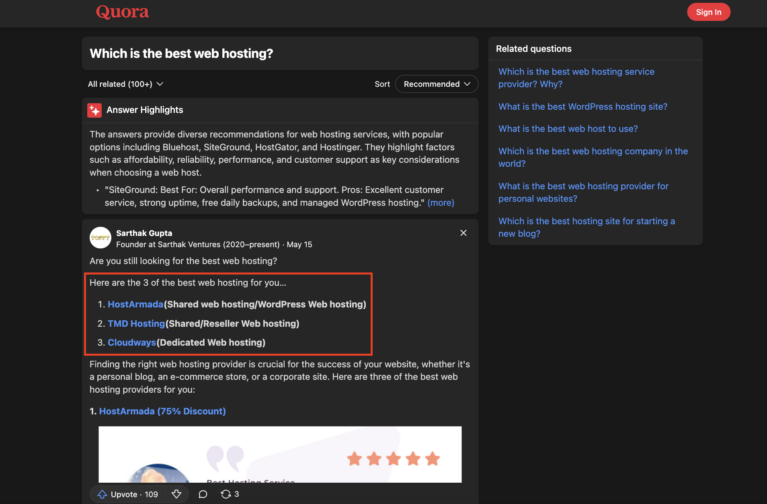
This problem-first approach makes their affiliate links welcome rather than intrusive.
For example, in the above Quora example, you’d notice that this answer got 109 upvotes even though it contains affiliate links. This is because the answer compares different web hostings in detail and gives a personal overview of why one is better than the other.
As the answer is genuine plus helpful, the audience doesn’t care whether it has affiliate links or not.
Your affiliates can incorporate product recommendations naturally within their online courses.
When teaching relevant skills, mentioning tools that help implement those lessons make perfect sense. If someone’s learning advanced email marketing, introducing your email platform as part of the workflow feels natural.
Course creators build strong relationships with their students. When affiliates demonstrate real expertise and help students achieve goals, their product recommendations carry significant weight.
Having affiliates who know how to promote your products effectively is crucial for your program’s success. But remember, even the best promotion strategies won’t work without proper affiliate tracking and management tools in place.
If you’re using WordPress, start by learning how to set up affiliate links properly. This ensures you can track every sale and reward your affiliates accurately.
Want to dive deeper into building a successful affiliate program? Have a look at these helpful guides:
Now there’s only one thing left to do. Get AffiliateWP and empower your affiliates with the right tools to grow your affiliate program.
Disclosure: Our content is reader-supported. This means if you click on some of our links, then we may earn a commission. We only recommend products that we believe will add value to our readers.
Launch your affiliate program today and unlock a new revenue channel to grow your business faster.
We use cookies to improve your experience on our site. By using our site, you consent to cookies.
Manage your cookie preferences below:
Essential cookies enable basic functions and are necessary for the proper function of the website.
Statistics cookies collect information anonymously. This information helps us understand how visitors use our website.
Marketing cookies are used to follow visitors to websites. The intention is to show ads that are relevant and engaging to the individual user.